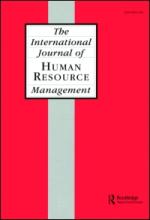
Abstract:
Increasing globalisation and work intensification has led to a blurring of roles and boundaries between work and family. Such influences are more pronounced in migrant workers who often struggle to balance their work and life in a new national context. The challenge of work-life balance (WLB) is further compounded in the case of minority migrant groups such as Muslim women living and working in a Western context, as it is unclear how, in the face of discrimination, Islamophobia, family and other sociocultural and religious pressures and the WLB issues of migrant Muslim women (MMW) are enacted. As most studies of WLB are at a singular level of analysis, this paper contributes to the WLB literature through the lens of intersectionality, by providing a multi-level relational understanding of WLB issues of MMW working in a Western context. Future research and themes identified in this paper provide a multi-level and relational understanding of WLB of MMW, and implications for managers tasked with managing WLB issues for MMW in Western contexts are also discussed.
Keywords:
Muslim women, relational perspective, work-life balance
